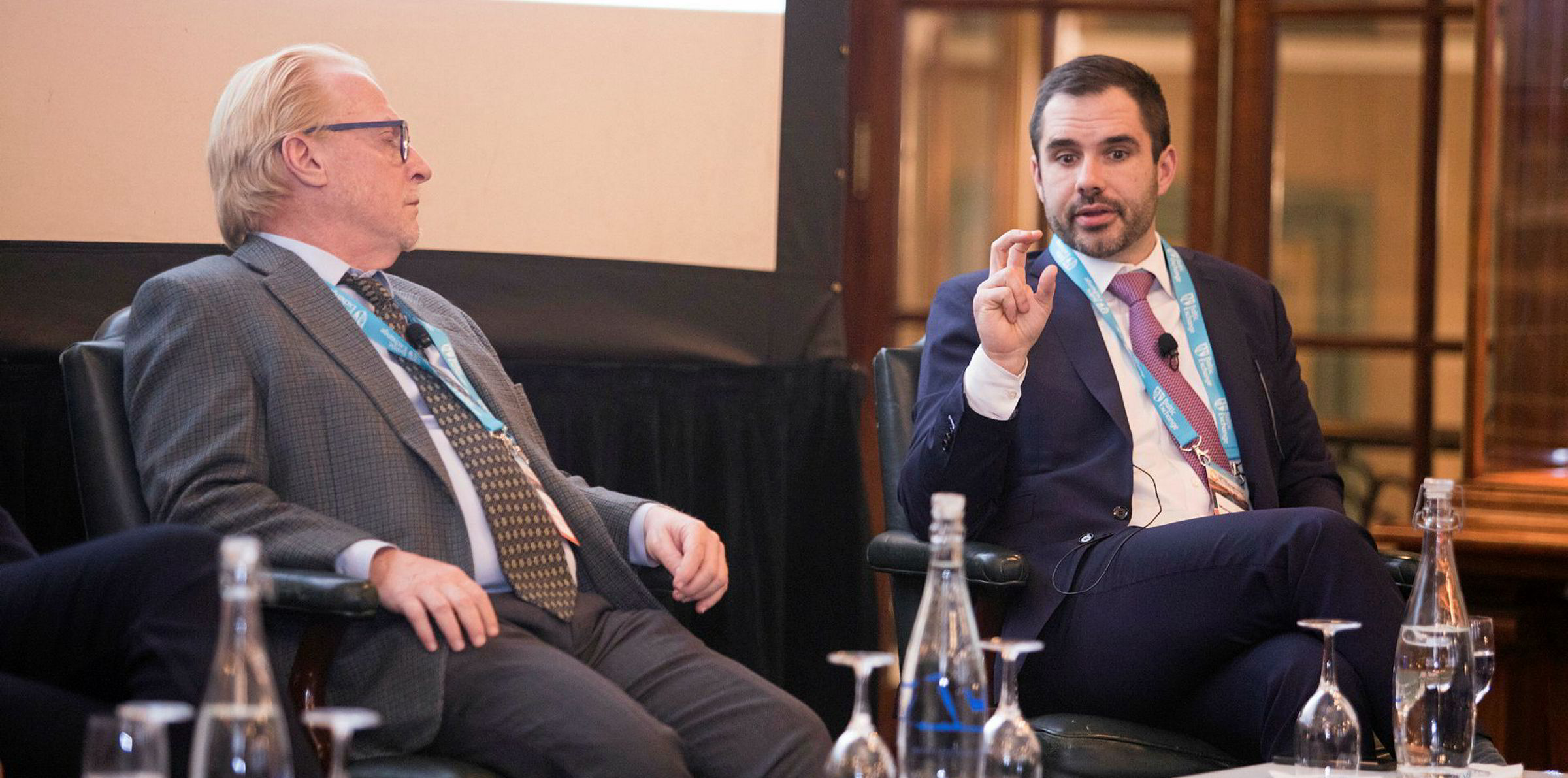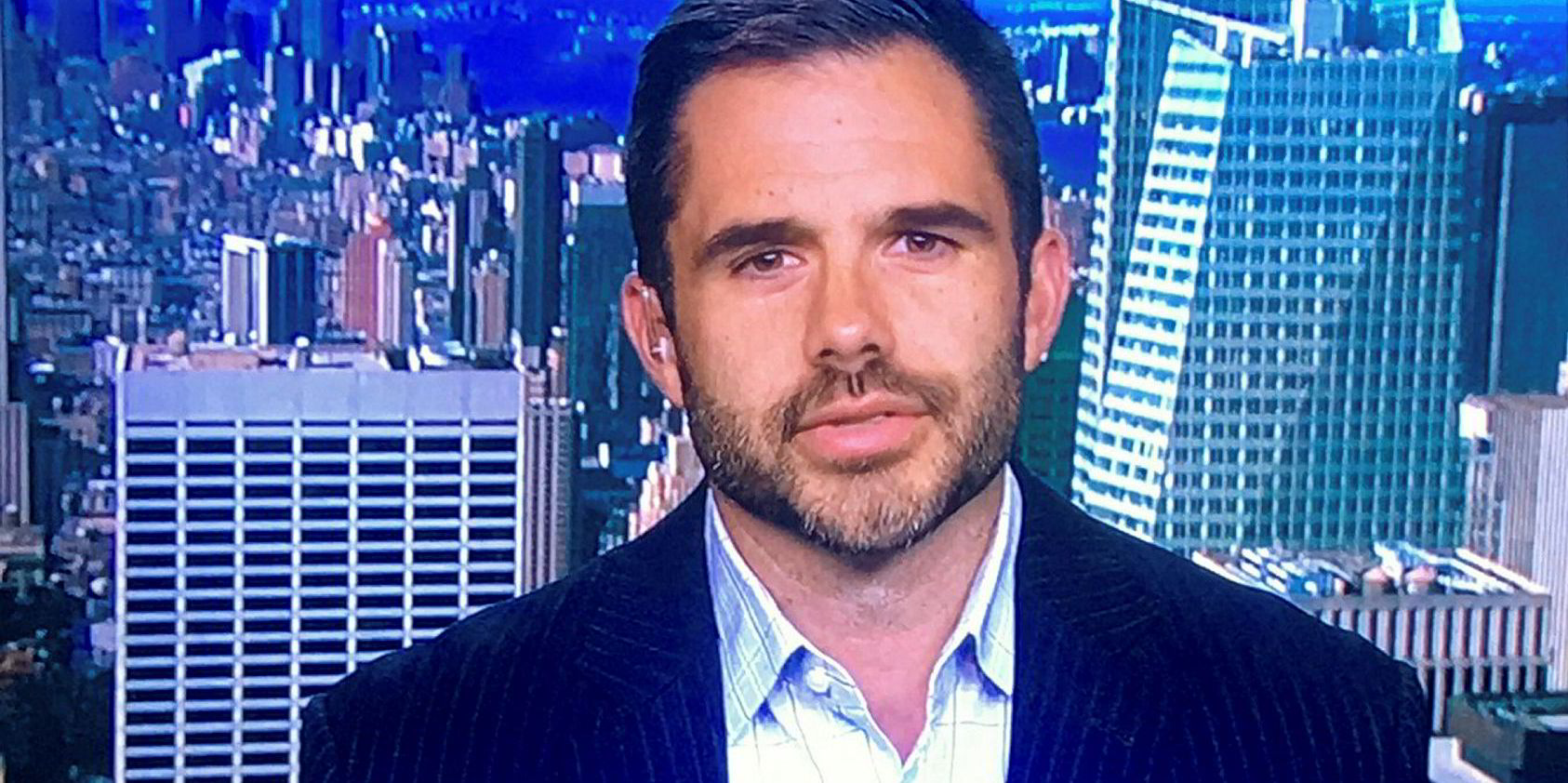A bid by shipping banks to encourage reduction in vessel carbon emissions is drawing strong support from the industry’s champion of corporate governance practices.
Equity analyst Michael Webber of Wells Fargo Securities said he will be incorporating owners’ disclosure of their emissions levels into his annual governance “scorecard” in support of the groundbreaking Poseidon Principles initiative.
Webber is sending out word of his intentions this week to more than 50 public shipowners measured in his yearly rankings, which have become closely watched by investors increasingly concerned with governance practices.
The analyst notes that, at least initially, Wells Fargo plans to reward mere public disclosure of carbon levels — already required to be provided to the IMO — rather than judging the actual emissions.
“The idea here is to align certain aspects of our corporate governance framework with the primary metrics found within the Poseidon Principles, and to help facilitate the disclosure of carbon data to investors,” Webber told shipowners.
“To be clear, at first we’ll simply be evaluating whether the appropriate data is disclosed — we do not intend to use that data to draw any qualitative or quantitative conclusions. However, we may over time.”
Wells Fargo is looking for disclosure of Annual Efficiency Ratio (AER) and Annual Energy Efficiency Operational Indicator figures, provided by vessel and fleet, as these are terms laid out in the Poseidon Principles documents.
Both are measured in grams of CO2 per tonne mile, and the AER is already required to be reported to the IMO for the first time this year, Webber noted.
The hope is to see public owners disclose the same information in their annual reports, he said.
The Poseidon Principles have 11 of the world’s leading ship lenders — led by Citi, Societe Generale and DNB — as signatories and were announced last month.
They incentivise loans to owners who want to buy or build vessels with lower carbon emissions, in line with the ambitious IMO target of reducing greenhouse gas discharge from ships by 50% by 2050.
“This is a very positive thing,” said Paul Taylor, global head of shipping and offshore at Societe Generale, as the Poseidon initiative was announced.
“There will be more liquidity for projects that reduce emissions. The flip side is liquidity may be more limited for others. It brings climate change fully into the due diligence for every transaction.”
To date, Webber’s scorecard has focused largely on the existence or absence of related-party conflicts in listed companies and the composition of their boards, including issues such as independence.
The most recent rankings in May saw Connecticut-based Eagle Bulk Shipping on top, with Greek owner DryShips 56th and last.
With the next scorecard not out for nine months, Webber said he aims to give owners plenty of time to account for the new element.
“We’re trying to create a degree of alignment between the scorecard and the principles — if they need more teeth, we’re happy to be a molar,” Webber told TradeWinds.






